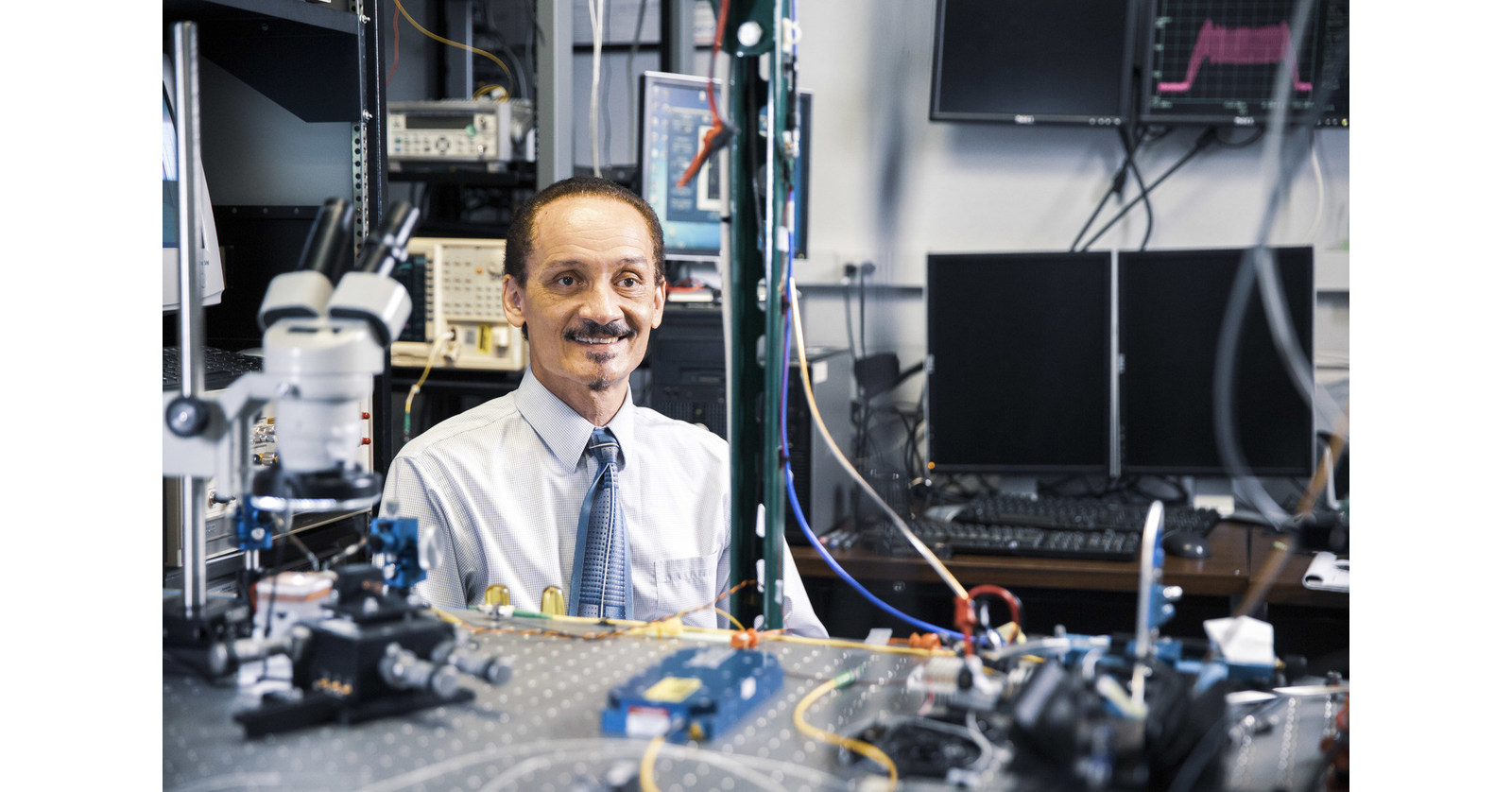From lasers that are used to cut Gorilla Glass for Samsung phones to fiber-optic cable technology that allows the internet to operate more efficiently, Delfyett’s work has been making waves for over three decades. His contributions include 44 patents, many of which use lasers for precision timing; fiber optics communication; and signal processing that help information move faster on the internet and in devices such as cell phones, laptops, tablets and autonomous vehicles. Another major group of patents is related to the generation and amplification of very short pulses of light using semi-conductor lasers that help build smartphones, medical stents for surgical procedures and micro-precision holes to make car engines more fuel efficient.
Delfyett also created Raydiance, a multi-million-dollar company that created the world’s first software-controlled ultrashort pulse laser.
“Photonics is an enabling technology — it’s not just powering the internet but influencing the whole spectrum of scientific discovery and advancement,” Delfyett says. “To know that I am contributing in my own special way to the area of optics and photonics is very rewarding to me.”
Delfyett teaches in UCF’s CREOL, The College of Optics and Photonics, which is a world leader in education, research, and industrial partnership in the science and technology of light. He is one of 106 scientists to be inducted into the NAE this year.
“Professor Delfyett, through his amazing work, has proven that he is one of the very best lasers and photonics researchers in the world,” UCF President Alexander N. Cartwright says. “I know he will continue to have an impact on the university and inspire his colleagues and our students to reach for the stars.”
Established in 1964, the NAE advances the United States’ global reputation by providing guidance to policymakers and government institutions on engineering and technology matters. Becoming an NAE member is a monumental honor that requires a nomination by a current member followed by an evaluation of criteria that includes scientific and real-world impact, involvement with professional societies and major awards.
Contact:
Rachel Williams, UCF Communications
[email protected]
SOURCE University of Central Florida
Related Links
https://www.ucf.edu/















Breaking Judicial Norms: A History